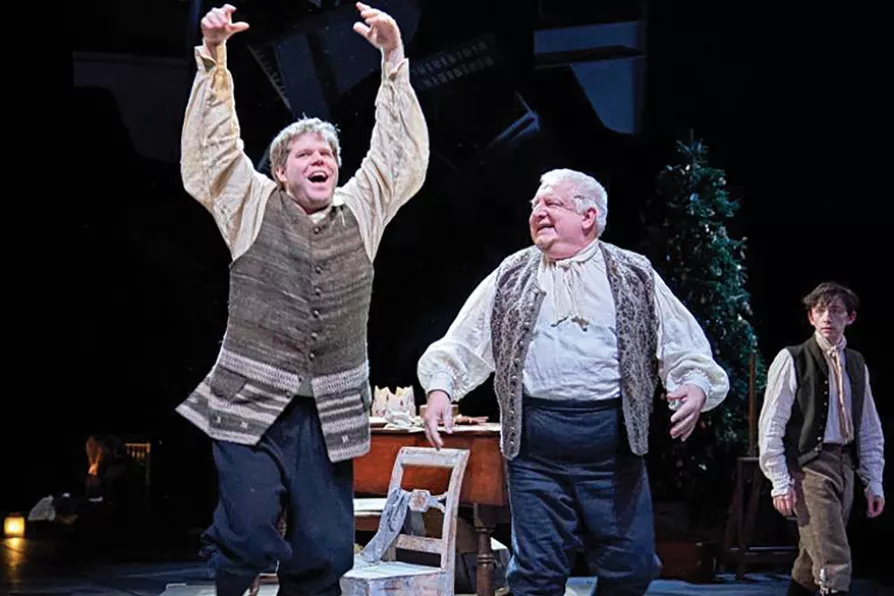ANDY HEDGECOCK and MARIA DUARTE review Good Night, and Good Luck: Live from Broadway, Becoming Victoria Wood, Hamnet, and Song Sung Blue

 BOISTEROUS DUET: Douggie McMeekin as Wilhelm Friedemann Bach, left, and Simon Russell Beale as Johann Sebastian Bach
[Manuel Harlan]
BOISTEROUS DUET: Douggie McMeekin as Wilhelm Friedemann Bach, left, and Simon Russell Beale as Johann Sebastian Bach
[Manuel Harlan]
THE AUDITORIUM — seating spaced for Covidian safety — is like a dimly lit cave and above the stage hangs a flock of upside-down harpsichords which look like exotic bats or prehistoric birds.
Enter Johann Sebastian Bach (Simon Russell Beale), who sits at the single harpsichord centre stage and plays the lovely Sheep May Safely Graze. This fusion of Vicki Mortimer’s set, actor and music is a fine opening to a fine play.
Soon the music changes key, a mistake is made, the famous tune repeated. The subtle comedy of this is well executed and there’s an effortless shift from Great Composer to domestic man as his wife Maria (Pandora Colin) comes on and tells him he’s keeping the baby awake: “Come to bed darling,” she implores.

JAN WOLF enjoys a British revival of the 1972 come of age farce/panto Pippin

JAN WOOLF is beguiled by the tempting notion that Freud psychoanalysed Hitler in a comedy that explores the vulnerability of a damaged individual

CHRIS SEARLE speaks to saxophonist and retired NHS orthopaedic surgeon ART THEMEN











